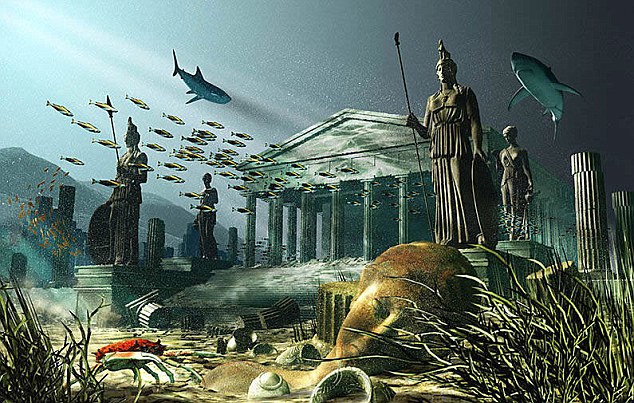The tale of the Lost City of Atlantis has captured imaginations for centuries, with its origins tracing back to the works of the ancient Greek philosopher Plato. According to his writings, Atlantis was a powerful and advanced civilization that existed thousands of years before his time, only to sink into the ocean in a single day and night of catastrophic events. Despite being one of the most enduring myths in human history, the question remains: was Atlantis a real place, or is it merely a story of legend?
Plato first introduced the concept of Atlantis around 360 B.C. in his dialogues Timaeus and Critias. In these texts, he described a vast island beyond the “Pillars of Hercules,” the ancient name for the Strait of Gibraltar. Atlantis was considered a utopian society, rich in natural resources, technologically advanced, and home to a powerful military. The Atlanteans were initially depicted as morally superior but eventually became corrupt and greedy, leading to their downfall. In Plato’s story, the gods punished Atlantis by causing the island to sink into the ocean lost forever.
While Plato’s account is often treated as an allegory—meant to illustrate the consequences of moral decay and the dangers of hubris—many throughout history have taken it as a factual account. The search for Atlantis has since become a topic of fascination for archaeologists, historians, and adventurers alike. Some have proposed that the story of Atlantis was inspired by actual historical events, such as the destruction of the ancient Minoan civilization on the island of Thera (modern-day Santorini) around 1600 B.C. The eruption of a massive volcano on the island could have caused a tsunami that devastated the Minoan culture, leading to the myth of a lost civilization beneath the waves.
Over the centuries, numerous theories have emerged about the location of Atlantis. Some suggest it could be in the Mediterranean Sea, near islands like Crete or Cyprus, while others point to places in the Caribbean, off the Bahamas coast, or even Antarctica. These speculations have sparked numerous expeditions and studies, but no definitive evidence has ever been found to confirm the existence of Atlantis. Modern archaeologists and historians often dismiss the idea, viewing Atlantis as a fictional story that conveys moral lessons rather than a historical account.
Despite the lack of concrete evidence, the legend of Atlantis continues to thrive in popular culture. Books, movies, and documentaries have further cemented the image of a fantastical civilization, and many people still believe in the possibility that the lost city will one day be discovered. Some have even pointed to advanced technologies, like sonar and underwater drones, as tools that could help locate traces of Atlantis in the future.
Whether Atlantis was real or simply a mythological construct remains a mystery. The legend endures because it taps into humanity’s desire to uncover lost knowledge and explore the unknown. As long as questions remain about the fate of Atlantis, it will continue to captivate the imagination and inspire the search for the truth. However, the line between myth and reality may be forever blurred, leaving us to wonder if Atlantis was truly lost or never real.



